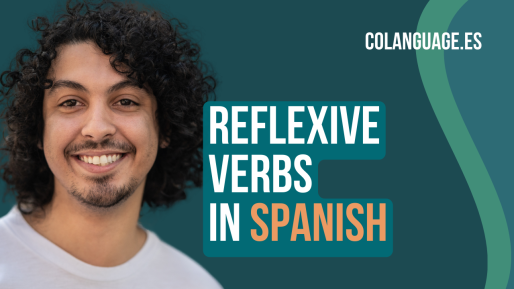Comparatives and superlatives in Spanish Share Copied!
Spanish Emotions and feelings A1 Describing objects and people
In this lesson, we are going to learn about comparative and superlative adjectives in Spanish.
<< Emociones y sentimientos (Emotions and feelings)
Video
Podcast
What are comparatives and superlatives?
Comparative and superlative adjectives in Spanish allow us to make comparisons between things and express the highest level of quality of something.
-
Tu perro es tan rápido como el mío. (Your dog is as fast as mine.)
-
Este libro es menos interesante que el otro. (This book is less interesting than the other.)
-
Ella es la más inteligente de la clase. (She is the smartest in the class.)
Comparative adjectives in Spanish
Comparatives help us make comparisons. The comparison with an adjective can show that something is superior (more or to a bigger amount), inferior (less or to a smaller amount) to something else or equal in a certain aspect.
| Comparative | Spanish | English |
|---|---|---|
|
Más...que (superior) |
El coche rojo es más bonito que el azul. | The red car is nicer than the blue one. |
| El avión es más rápido que el tren. | The plane is faster than the train. | |
|
Menos...que (inferior) |
Este teléfono es menos caro que aquel. |
This phone is less expensive than that one. |
|
Esta habitación es menos espaciosa que la otra. |
This room is less spacious than the other one. |
|
|
Tan...como (equal) |
Esta película es tan emocionante como la otra. |
This movie is as exciting as the other one. |
|
María es tan inteligente como su hermana. |
Maria is as smart as her sister. |
Comparisons not only happen with adjectives, they can also be made with nouns, adverbs and verbs.
María tiene más dinero que Daniel. (Maria has more money than Daniel.) noun
Tú trabajas más rápidamente que tu compañero. (You work more quickly than your colleague.) adverb
Mi perro ladra más que tu perro. (My dog barks more than your dog.) verb
Irregular comparative adjectives
Just like in most grammar topics in Spanish, there are exceptions to the general rule. They are called irregular comparatives.
| Comparative | Spanish | English |
|---|---|---|
|
Mejor (better) |
Tu café es bueno, pero el mío es mejor. |
Your coffee is good, but mine is better. |
|
Peor (worse) |
El tráfico en esta ciudad es malo, pero en mi ciudad es aún peor. |
The traffic in this city is bad, but in my city it's even worse. |
Listening exercise
In this listening exercise we will practice comparative adjectives in Spanish.
| Name | Spanish | English |
|---|---|---|
| Daniel | ¿Has visto mi nuevo coche? | Have you seen my new car? |
| María | Sí, lo vi. Es más grande que el mío. | Yes, I saw it. It's bigger than mine. |
| Daniel | Pensaba que era tan grande como el tuyo. | I thought it was as big as yours. |
| María | No, pero el mío es menos caro que el tuyo. | No, but mine is less expensive than yours. |
To make an unequal comparison, always use "que" after the adjective. For an equal comparison, "como" follows the adjective.
Más grande que (bigger than) unequal
Tan grande como (as big as) equal
Superlative adjectives in Spanish
There are two types of superlatives, relative and absolute.
Relative superlatives
Relative superlatives compare things within the same category. They indicate what is at the top or at the bottom of that group.
We will begin with the relative superlatives, expressing that something is at the very top.
| Superlative | Spanish | English |
|---|---|---|
| El más... | Este es el día más feliz de mi vida. | This is the happiest day of my life. |
| El más... | El invierno en esta región es el más frío de todos. | Winter in this region is the coldest of all. |
| La más... | Mi abuela es la persona más amable que conozco. | My grandmother is the kindest person I know. |
| La más.... | El Everest es la montaña más alta del mundo. | Mount Everest is the tallest mountain in the world. |
You can also indicate that something is at the very bottom.
| Superlative | Spanish | English |
|---|---|---|
| El menos... | Este es el libro menos interesante que he leído nunca. | This is the least interesting book I have ever read. |
| El menos... | Él es el menos paciente de todos mis amigos. | He is the least patient of all my friends. |
| El menos... | Este restaurante es el menos recomendable de la ciudad. | This restaurant is the least recommended in the city. |
| La menos... | Esa película es la menos emocionante que he visto este año. | That movie is the least exciting one I have seen this year. |
Absolute superlatives
The second type of superlatives - absolute superlatives - express the highest degree of something. They are formed by adding endings to the adjective. These adjective endings have to agree with the gender and number of the noun they describe.
| Superlative | Spanish | English |
|---|---|---|
|
Dificilísimo (extremely difficult) |
Aprender a tocar el violín es dificilísimo. | Learning to play the violin is extremely difficult. |
|
Lentísima (extremely slow) |
La tortuga es lentísima. | The turtle is extremely slow. |
|
Altísimo (extremely tall) |
Mi padre es altísimo. | My father is extremely tall. |
You can also form an absolute superlative in different ways, by adding the words “very” or “extremely” before the adjective.
Mi padre es muy alto. (My father is very tall.)
Mi padre es sumamente alto. (My father is extremely tall.)
Irregular superlative adjectives
Superlatives also have irregular forms that do not follow the general patterns.
| Superlative | Spanish | English |
|---|---|---|
|
El mejor (the best) |
Él es el mejor jugador de fútbol en todo el equipo. | He is the best soccer player on the entire team. |
|
La peor (the worst) |
Esta es la peor novela que he leído nunca. | This is the worst novel I have ever read. |
Listening exercise
In this listening exercise we will practice superlative adjectives in Spanish.
| Name | Spanish | English |
|---|---|---|
| Daniel | ¿Cuál es el mejor restaurante del centro? | What is the best restaurant in the city centre? |
| María | Hay uno con una estrella Michelin, pero es dificilísimo reservar. | There is one with a Michelin star, but it is extremely difficult to book. |
| Daniel | ¿Es uno que tiene precios altísimos? | Is it one that has very high prices? |
| María | Sí, es carísimo pero es el mejor de todos los que conozco. | Yes, it's very expensive but it's the best of all the ones I know. |
Key takeaways
Here is a quick summary of this lesson.
- The comparison with an adjective can show that something is superior (more or to a bigger amount), inferior (less or to a smaller amount) to something else or equal in a certain aspect.
- The two types of superlatives, - relative and absolute- compare things within the same category and indicate what is at the top or at the bottom of that group (relative) or express the highest degree of something (absolute).
- Irregular comparatives and superlatives do not follow any rules.
Subscribe to our social media channels to get free daily exercises!



